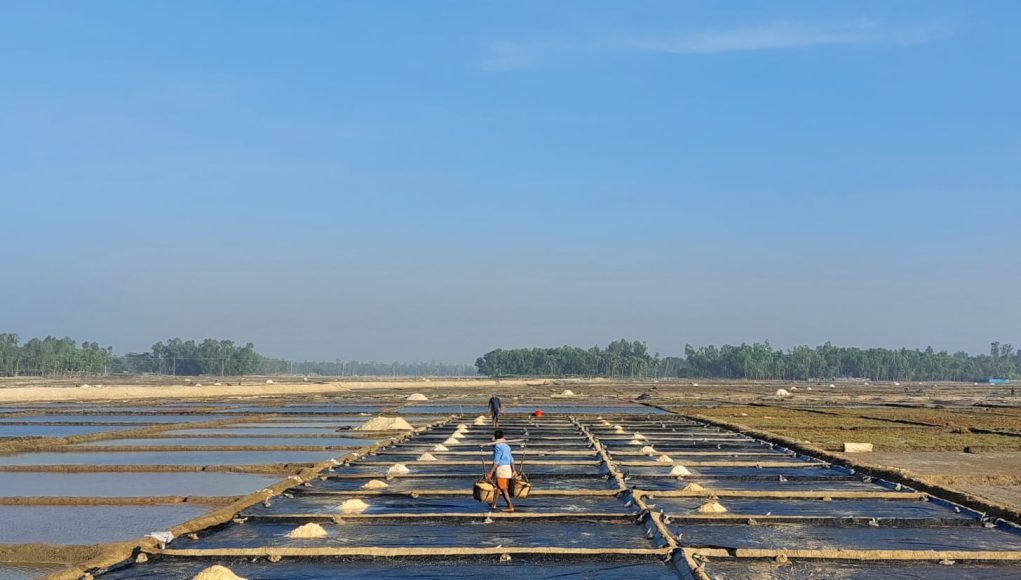Salt farmers in Bangladesh are facing severe distress as the price of salt plummeted unexpectedly at the start of the season. Despite their tireless efforts, they are facing losses. Many farmers have expressed that if this price trend continues, they may abandon salt farming next year.
Cost vs. Revenue: Why Are Farmers Suffering?
Currently, the cost of cultivating salt on one kani (a traditional unit of land) amounts to approximately BDT 83,000. This includes Tk30,000 for land lease, Tk10,000 for polythene, Tk40,000 for labor and food, and Tk3,000 for water.
Even with a maximum yield of 220 maunds per kani, the current market price of salt is only Tk250 per maund. This results in a total income of Tk55,000, leaving farmers with a staggering loss of Tk28,000 per kani.
Market Dynamics and Middlemen’s Influence
An exploitative network of middlemen dictates salt prices, not the farmers. Farmers are not receiving fair prices for their produce. Additionally, farmers report losing 15-20 kg of salt per maund due to rigged weighing practices, exacerbating their financial burden. According to them, they would need a price of at least Tk400 per maund to break even.
Farmers’ Appeal to the Government
While salt farmers tirelessly toil day and night, middlemen profit from their laborious efforts. The farmers urged the government to ensure fair salt prices and curb the influence of middlemen.
Preserving the Salt Industry
Salt farming is a vital industry in Bangladesh. However, without guaranteeing fair prices, its future remains uncertain. The government and relevant authorities must take immediate action to resolve this crisis. Ensuring proper compensation for farmers’ labor is essential to safeguarding the salt industry and its workers.
By Rajin Saleh
Photo: Rajin Saleh










